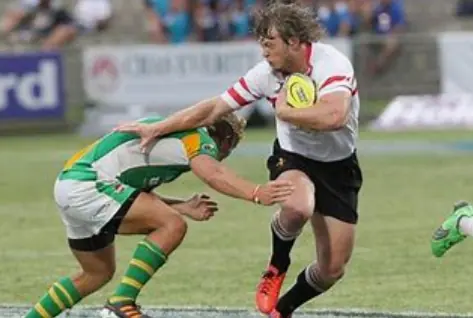Rugby Injuries and Recovery: What It Takes to Come Back
Rugby is tough. It’s full of tackles, scrums, and big hits, and that means injuries happen. Whether it’s a twisted ankle or a big blow to the shoulder, players often find themselves sitting out for a while. But coming back from an injury isn’t just about resting up. It takes hard work, patience, and a strong mindset. Some players say it’s even harder than training for a game! Still, many rugby players turn their recovery into a chance to grow stronger, both on and off the field. Here’s how they do it.
What Kind of Injuries Happen in Rugby?
Let’s be real: rugby isn’t exactly gentle. With so much contact, injuries are part of the game. Players often hurt their knees, shoulders, and ankles, and sometimes even get concussions. Tackling and scrums are where most of the big hits happen. Even though players wear mouthguards and train hard to stay safe, accidents still pop up. The good news? Coaches and physios (that’s short for physiotherapists) are always on hand to help players recover quickly and safely. Still, getting hurt can be super frustrating, especially when all you want is to be back on the field.
Getting Better Takes Time and Effort
Once a player is injured, it’s time for rehab. That means doing specific exercises, going to physio appointments, and following a routine, every single day. It’s not always fun. Some players get bored or feel left out while their team keeps playing. Others start to worry they might not get back to where they were. But if they stay focused and keep pushing, they usually come back even stronger. It’s all about staying positive and putting in the work, even when it feels slow or tiring. One step at a time really does make a big difference.
Staying Busy While Healing Up
While waiting to heal, players often look for ways to keep their minds busy. Some watch old games, help coach younger players, or just cheer on their teammates. Others try fun stuff off the field, like gaming or light hobbies. A few even play online games during their downtime. Some players enjoy the fast-paced feel of places like wolf winner real money online casino, where they can make quick decisions and feel that rush of competition again. It’s not the same as a real game, but it helps pass the time while staying sharp.
Support Makes All the Difference
It’s tough being stuck on the sidelines, but players don’t go through it alone. Friends, family, coaches, and team physios all help out. Sometimes just talking about how they’re feeling makes a huge difference. Clubs are getting better at checking in on players, not just for their injuries, but for their mental health, too. Having people who believe in you and cheer you on can help you stay motivated and not give up. And when players feel supported, they bounce back quicker and with way more confidence.
Game Time Again: Let’s Go!
Finally, after weeks or even months, it’s time to get back in the game. But coming back isn’t just about fitness. It’s about trusting your body again. Players often feel nervous at first. Will they be as fast? As strong? Will the injury come back? That’s totally normal. Coaches help them ease into training and take it slow until they’re ready. And when they finally hit the field, the feeling is awesome. It’s not just about playing again. It’s about knowing they worked hard to get there. That first try or tackle back? Pure magic.



Leave a Reply
Want to join the discussion?Feel free to contribute!